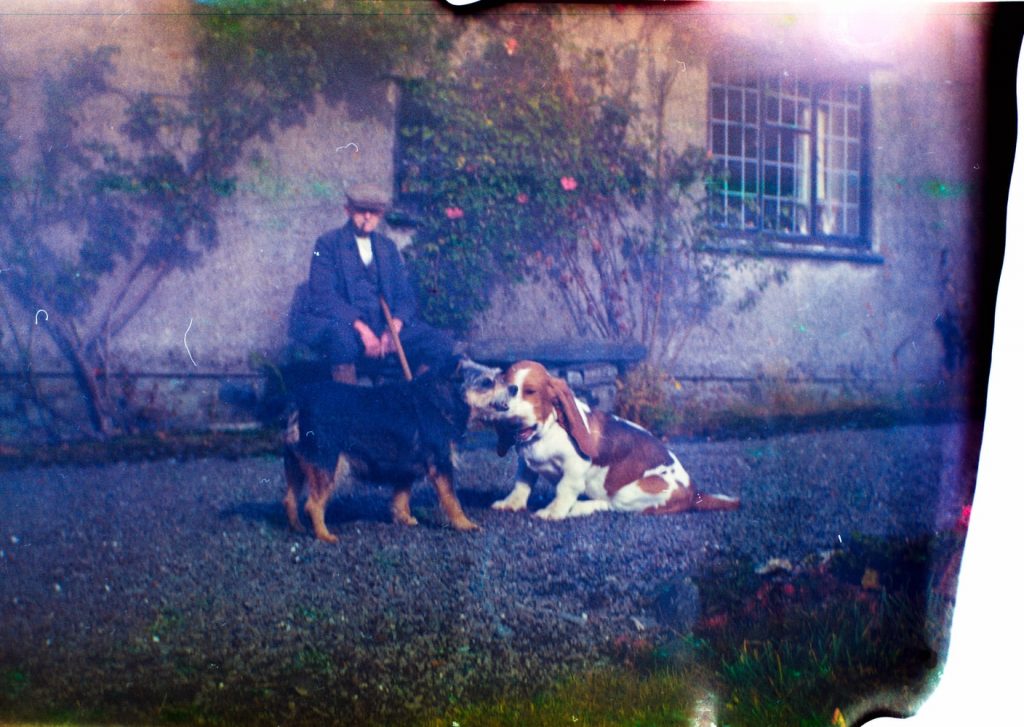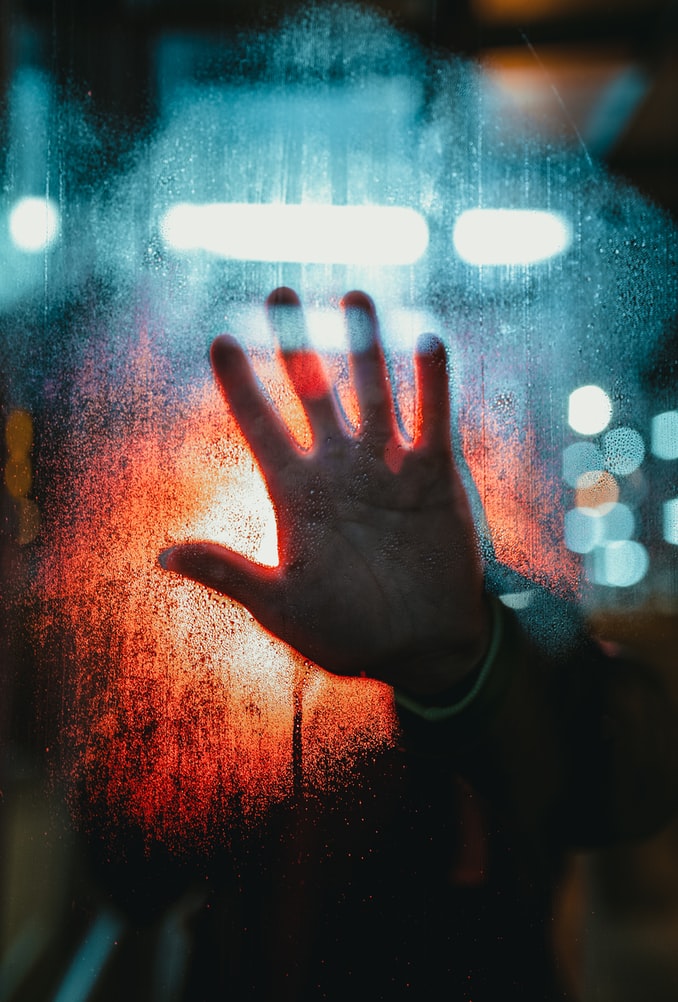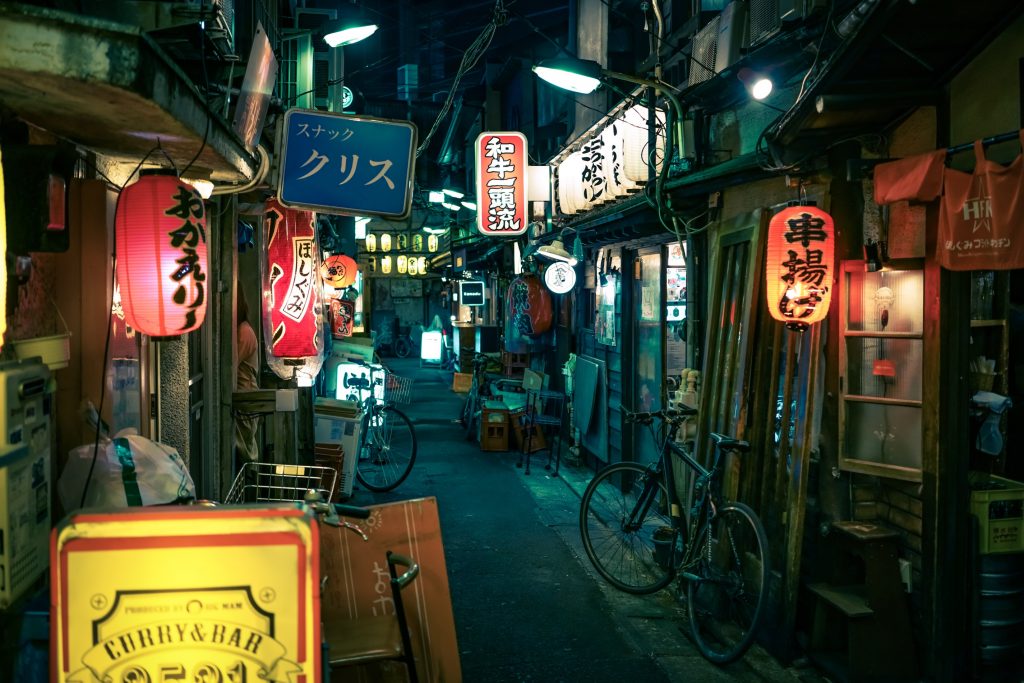
The screech of the apartment complex’s 6:00 AM siren pierced through concrete walls. It signalled to the room’s singular resident he was permitted to wake. The steel door constraining the man inside the room clunked as magnetic bolts slid back into its frame. It was an empty gesture on behalf of the Government in control of the complex. The vault-like door to the building itself wouldn’t unlock for the man until his designated time in the park. Another minute passed before the siren’s vibrations subsided from the room’s metal entryway and the man felt brave enough to tease open crusty eyes. Plastic bedsheets crackled as he slid bruised and swollen feet to the floor and the man shivered as his soles brushed the ground. One more week until he had enough tokens to trade for a carpet.
As he stretched his arms and yawned, the man left grimy fingerprints on the ceiling. He was painfully aware of his vertebrae as they cracked and dug into taut skin. The barricaded LCD screen embedded in one of the walls flickered on as the floor’s pressure recognition registered his weight. Yellow text rolled across the screen as the man nervously scratched his stomach, hoping the briefing for June 22, 2048, was different. Carbon emissions were expected to fall by December 1 below the global 42 billion metric tonne benchmark claimed by the federal Government to be the “beginning of sustainable change”. No foreseeable alterations to offset sequestration measures were to be announced until at least a half billion tonnes were removed. No changes to the zero-child policy in Sydney were to be expected until another one billion tonnes were removed. This brief had been identical since December 1, 2047, when three billion metric tonnes more carbon in the atmosphere were present.
There was a whirring sound from deep within the ceiling and the man felt a breeze lick against his bulging bones as the air filters turned on. The circular monitor surgically inserted between his collarbones and over his trachea glowed a bright green, beginning to track his daily exhalations. If he exhaled more than a particular amount of carbon dioxide the monitor would expand, compressing his trachea if he walked more than two metres from a carbon filter. There were no reports of death from tracheal compression for four months, which conveniently corresponded with the release of the V.2.01 dogs. No one risked leaving their apartment hoping to see another human scurry back inside their own now that company was readily, but expensively, available.
An electronic stutter from the foot of his bed marked the time as 6:15 AM, when his own dog was hardwired to turn on. He had even saved up enough weekly tokens to trade for a voice box with the vocal recording of an old school student. It had cost him another fortnight worth of tokens to get installed but was worth the human sound.
‘Good morning, sir.’
The man felt butterflies jitter up inside his stomach. The voice emanating from the microphone lodged in the dog’s iron maw was feminine. He recalled the note that came with the voice box telling him the student’s name was Luna. The man ignored the static and focused on the sleek tone of the recorded voice. It stirred a warm emotion in his lower chest he hadn’t felt since high school. The man whistled, walking across to the Perspex window next to his bed and the machine squeaked over to sit obediently at his side. The window offered a limited, ground floor view of the park at the heart of the apartment complex. As he did every morning whilst stroking Luna’s head, smudging dirt into her silver scalp panel, he watched the first park visitor of the day.
The woman was the closest thing he would refer to as a friend other than Luna. She was first on schedule each day to be allowed outside to plant her carbon-quenching tree seeds provided by the Government. Only one person was allowed to be exhaling their carbon outside at a time. After planting, residents were given free time until their carbon exhalation limit was reached. Brief socialisations during the crossover period as the next resident was allowed outside were also tolerated. Over the past few months this woman’s carbon exhalation limit had been reached quickly. Each of the V.2.01 pets were required to be refuelled using one of the fuel pumps scattered throughout the park. Every resident on the release day of V.2.01 had their carbon monitors wirelessly linked to the pumps which also slashed the permitted exhalations. This woman had saved tokens since March to trade for a beautiful Labrador replica whose engine required almost daily refuelling.
The man had not taken notice of her for the few years they had been locked away planting trees, until the day she went for a walk with her new dog. The smog overhead had experienced a mild respite, and rare sunlight glinted of the machine’s golden hide. His bottom jaw cracked as it fell. He remembered splaying his fingers against the Perspex, forehead trying to press through the impermeable material, staring at the dog. The woman had noticed him staring at her lonely routine and stopped her walk for the first time. The man tried to mouth a question, but she shook her head and gestured at her ears with a fingernail as clean as her dog’s shining panels. The man opened his mouth and exhaled on the Perspex, glad the smell of his breath could not penetrate the material. He traced in the condensation:
What’s its name
The woman smiled and repeated the action, and the man followed the trace of her slender finger. He whispered each letter as she wrote:
Helios
He smudged out his first question and wrote back:
Mine’s name is Luna
*
Ever since that first exchange, he imagined her voice sounded just like his Luna whenever they exchanged words with breath and fingers. The man was third in line to plant his tree and had never heard her speak. But every day they traded stories about their dogs, neither caring about repetitiveness. She seemed as fascinated by Luna as he was by Helios.
Today, as the woman scooped dirt over her seeds, a nasally voice came over the man’s personal intercom informing him he was to plant second today. The usual resident had fallen ill and passed away from a bacterial infection obtained from park soil. The man froze. Nerves ensnared him, not too different from those he felt before his first date at seventeen years old, decades ago. It took the woman straightening from her seeds, and the sight of her fingers stroking the head of Helios, to shake him from the uncanny spell. He reached for the dirt-encrusted flannel shirt curled up in a ball on his bed and strode out of his room buttoning it. Luna trotted behind him, the metal chain fixed to her back clinking in her wake.
Grey blades of grass snapped under the man’s feet as he made a beeline through the park to where he had watched the woman and Helios plant their seed. The chain bolted into Luna’s metallic hide bit into his wrist. He had wrapped it around purple fingers two, three, four times. The cold metal cutting into his malnourished carpals reassured him that Luna was still there. No, he couldn’t lose her. Luna’s warmth seeped from her side as she clanked along with the shivering man, wafting dirty mist that tickled the hairs of his arm and warmed his skin. For every extra degree of warmth Luna gifted him, he could feel his carbon permittance drifting away. He hurried his step and tried to shallow his breathing.
He eyed the woman stepping slowly, purposefully, on the other side of the park on the cement pathway. She was approaching his apartment window and he took notice of her neck craning to try and catch a glimpse of his presence. This would be the first time in months they did not converse through the window and they had only a few minutes until her carbon monitor changed red. The soft thud of her rubber shoes reverberated throughout the colourless park and the silence of Helios’s oiled panels was overridden by Luna’s rusty squeaks.
Every nut and bolt of Helios was flush with polished metal, gleaming to a holy shine. The man though it was more yellow than the sun, and it probably was warmer too. She must have spent all her tokens on Helios. Oiling him, upgrading his paints, maybe even a voice box of his own. The man’s butterflies turned scalding as jealousy squeezed his throat. He couldn’t buy gold paint. He couldn’t even buy a carpet for his apartment. Maybe he could ask for a panel from the Helios’s pelt. A screwdriver would twist out those perfect little bolts from Helios, then he’d pry off a panel of Luna with a branch from one of the bigger trees.
He jangled the chain around his wrist and yanked Luna along more sharply than he ever had previously. Luna accidentally spoke as her voice box was mechanically activated.
‘Good morning, sir.’
He saw the woman pause at the refuelling station above the dusty ground nearest his window. He peered at Helios from behind a row of skeletal shrubs as he got closer. She never refuelled Helios at that station, and her head was turned to look at his window. Was she waiting for him? This was the longest she had been in the park without seeing the man since they began to talk. If you could call it talking. He saw himself whispering as loudly as he could to her, pleading for a single sheet of Helios’s metal. Or should he say hello first? Would she want to talk to him if it wasn’t through a window and the vapour of their saliva? A fuzzy rumble grew in his stomach at the idea of her responding. He could not frame her words or imagine the words’ content or even what he would say himself. The only thing he knew for sure, was that he wanted to trade a piece of Luna for a piece of Helios.
The woman slid the pump’s nozzle into Helios’s jaws and the woollen sleeve of her jacket slipped down her wrist. The scratchy clothing and Helios were the two most expensive things the man could imagine, and her self-discipline saving tokens ignited his admiration. He had eaten nothing but refrigerated pasta that month and had prayed to whatever it was people decided to believe in these days that he wouldn’t get sick. It was the cheapest option, and he still couldn’t afford a carpet.
He had almost reached the woman as she withdrew the pump gracefully from Helios’s maw, the dog’s mouth dripping fuel. He slapped his bare feet slightly harder on the ground now he was on the pathway, hoping she would notice him before he spoke. The gurgling sound of the petrol settling in Helios’s aluminium windpipe didn’t allow his wish to come true.
‘Hello Helios.’
His gentle greeting paralysed the woman. His voice was obviously different to the previous resident with whom she had exchanged few light words with as their shifts were exchanged. He yanked Luna’s chain and stepped back to the dirt and grass, hoping the distance would evoke the same sense of security as Perspex. She was a tall woman, taller than him, something he hadn’t noticed through the window considering the park grounds were slightly indented. For the second time that day he picked at his stomach in uncertain anticipation. He knew he was not an impressive man, a nobody with sliced feet and a filthy flannel shirt. And Luna. He took a slight step forwards, teeth bared in an unaccustomed smile.
‘You both look nice today’.
He stopped moving as quickly as he started. He didn’t want her to leave and Helios was so much nicer up close. Polished enough that you could see Luna’s robotic panting in its side, silver-grey turning bronze in the reflection. A panel from Helios would make Luna so much prettier. The woman nodded as slow as her tightly coiled muscles would allow. He took it as an invitation.
‘Would I be able to touch him? You can step back if you want.’
She looked like one of the Government’s recording-owls, only her eyes were dull blue and lacked the beautiful glow that emanated from the owls’ bulbous eyes. The owls weren’t turned on until after sunset, so they didn’t need to worry about those either. No one ever worried about them anymore because no one had enough carbon to exhale by night, but the Government kept the owls anyway.
‘Helios hasn’t touched anyone but me before.’
The woman was beginning to relax and her pupils were beginning to widen in the way they did when she saw the man through the Perspex. He was still aware he needed to finish the conversation fast. He hadn’t yet planted his own seed and her time was running out.
‘Do you think Helios and Luna could swap a panel? You can paint away the rust a little bit maybe. If you wanted.’
‘With Luna?’
‘Yes. I can buy a screwdriver instead of a carpet and we can take out a bolt a day to keep our monit-‘
The woman’s tracheal monitor cut to red. Her eyes widened to match her growing pupils as fear snatched at her attention. She needed to get back into her apartment and to her carbon filter. With one last glance at the man she hurried past him, cheeks puffed out as tried to hold her breath. But first with a paling face, she managed a smile in the direction of Luna and nodded. As she fled the park, the man planted his seed right there below his window, butterflies flitting around in his stomach again like a schoolboy. He was back in his own apartment well before his own carbon limit was reached and placed an order for a screwdriver express the next morning.
*
The next morning, the man leapt out of bed to swing open his apartment’s steel door. He tenderly picked up the sleek black box wrapped with red ribbon on the floor that contained his order. His heart was pounding, and he wished it would slow down. He needed as many exhalations as he could get today. At this thought, the nasally voice over the apartment intercom spoke to the man again. He was to plant his seed first today. The first resident had died from tracheal compression after her exhalation limit was reached. For the second day in a row, the man froze. He untied the box’s ribbon and pulled out his screwdriver.


